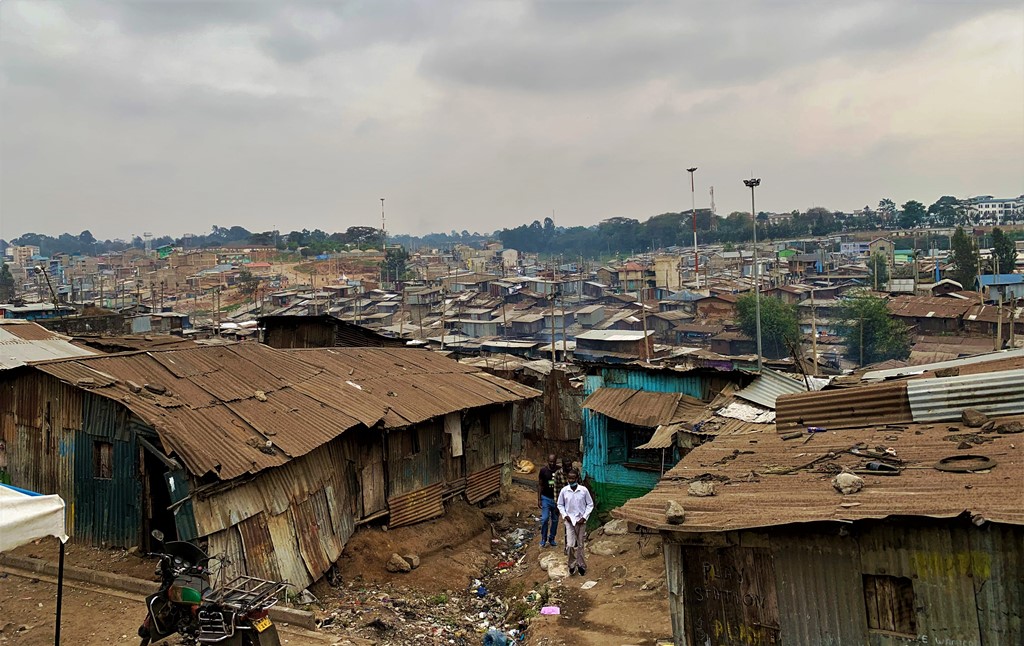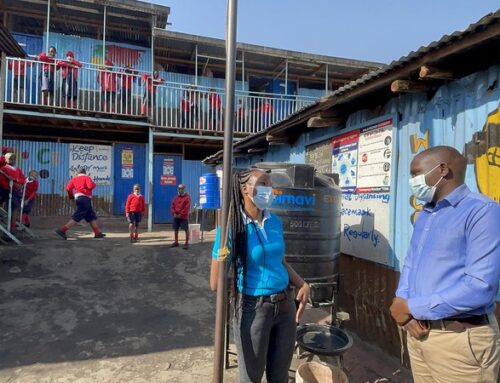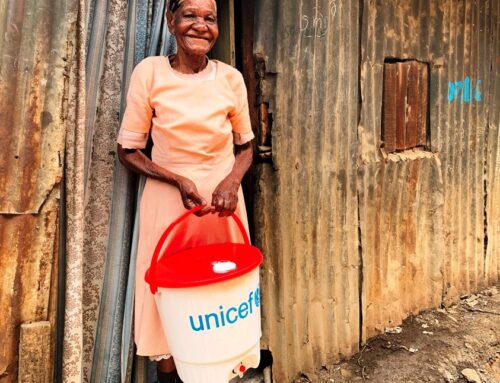Background
WASH Alliance Kenya (WAK), through UNICEF funding and in collaboration with its partners, the MOH, Nairobi county, Nairobi Water and Sewerage Company and communities, implemented WASH intervention to minimize the transmission of COVID- 19 among the targeted population in informal settlements.
Specifically, WAK supported COVID -19 response in selected informal settlements including Kibra, Mathare/ Gorogocho, Mukuru, and Githogoro. This was done by improving access to safe water supply in selected areas through water connection and repairs, installation of handwashing stations in public places, and distribution of handwashing vessels and soap to vulnerable households (elderly, persons living with disability, orphaned and vulnerable children and chronically ill persons).

Action
The following interventions that targeted the most vulnerable living in informal settlements were implemented, pertinent to helping mitigate the effects and arrest the spread of Covid-19:
- Collaborated with state agencies: WASH Alliance Kenya partnered with NCWSC, public health, and administrative office to identify viable sites. Through this partnership, some 34 sites were identified for placement of water storage tanks and 200 community handwashing stations, and 10,000 household handwashing buckets were distributed to vulnerable persons in Kibra.
- Worked with community groups and natural leaders: To ensure sustainability, WASH Alliance Kenya worked through organized groups, such as the boda boda associations, cluster heads, volunteer business people (in strategic points), People Living With Disabilities representatives as opposed to recruiting people to man the handwashing stations.
- Identified vulnerable households: through the public health community strategist and the administrative officers, WASH Alliance Kenya identified and mapped vulnerable persons living in Kibra including People Living With Disabilities, the elderly, OVCs, and the chronically ill e.g. HIV/AIDS, diabetes, etc. This ensured the most vulnerable were reached.
- Reaching out to the household level: 1,900 households that were identified as vulnerable were supplied with handwashing vessels and soap in Kibra. These vessels are estimated to have benefitted about 9,500 people (five persons per household).
Impact
These intervention actions undertaken by WASH Alliance Kenya benefited several vulnerable people living in Kibra and helped the local administration officials reach and protect their community. 38 handwashing stations, served with bar soaps, were installed at high traffic areas, while 6 tanks were strategically installed in areas the most vulnerable persons could reach safely and easily. The handwashing vessels distributed to individual households also helped improve hygiene for vulnerable persons and their families, reducing the risk of infection.
Quote
Kennedy Omolo, Umande Trust (Implementing Partner)
“We’ve been receiving the elderly, the physically challenged, and other very vulnerable people asking for the vessels. There is a great need for these facilities and if there was a way to get more and reach some of these people we would be touching the most disadvantaged in the Kibra community.
“With Covid-19, it has been challenging because the most critical need is water and it has been very difficult to get it distributed in informal settlements. We call upon stakeholders looking to help the vulnerable informal settlement to help these people because they cannot afford sanitizers but they can afford a jerry-can of water ad soap. It is easier for them to wash their hands than sanitize.”



